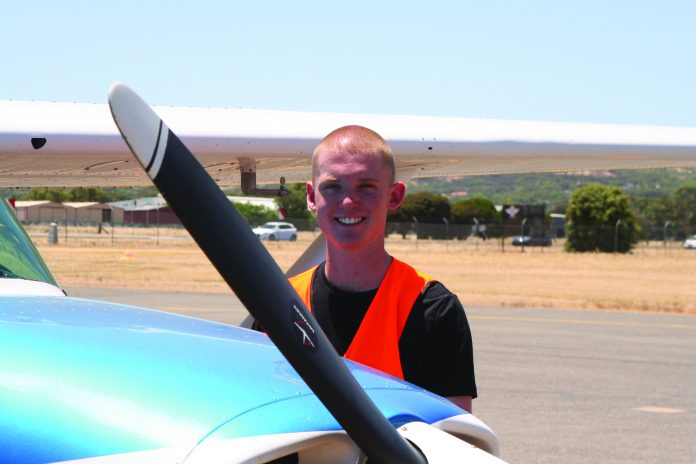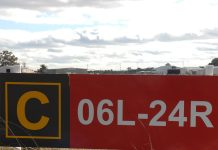While most people think of pilots flying passengers around the world on commercial airlines, there are many more diverse career paths in aviation.
To celebrate National Science Week, check out recreational pilot licence holder Benjamin Dunk’s path to becoming a pilot:
‘I’ve had my sights set on becoming a pilot since I was very young. If I’m honest, I can’t really pick the moment that I believe led me down the path I’m on today.
‘The more I found myself interested in flying and the more experiences I got, the more confident I was in realising this was the career I wanted to pursue.
‘I might have been drawn to the novelty of doing something that humans have only been able to do for a little over 100 years.’
‘When I first showed some interest in flying, my parents organised a flight in a small plane to see if I’d enjoy it.
‘While I don’t remember that much, I remember watching my instructor and being fascinated by what she was doing.
‘All the tasks she was able to perform and the specialised skill set really appealed to my 10-year-old self.
‘That same instructor would go on to send me solo 9 years later at Parafield Airport in Adelaide. On the recommendation of the same instructor, I joined the Air Force Cadets at 13 to learn more about aviation in a well-supported and structured organisation.
‘The cadets would go on to support me through a gliding scholarship to achieve my first solo at 15, then my certificate and instructor rating in the years following.
‘I was surrounded by people my own age with the same general interest in aviation. This would go on to be fantastic support for me in my last few years of high school.

‘In the last 6 months, saving up through my part-time job, I have completed my recreational pilot licence with the Parafield Flying Centre and I am now considering where to take my aviation career.
‘It’s really important to set yourself goals in your training and work towards them. Something like a commercial licence can be daunting at first.
‘I decided to do things in steps – recreational licence, then private, then commercial, which will give me more flexibility in how I choose to study and pay for my flying.
‘I really encourage anyone considering a flying career to do science, technology, engineering and mathematics (STEM) subjects in high school.’
‘Having a background in physics means once you’re sitting in front of an aviation theory textbook, the concepts being presented are much easier to understand.
‘I would say that to be a successful pilot requires you to have good self-discipline and a humble attitude that allows you to reflect on your flying, particularly when you’re off solo and need to recognise on your own where you need to improve. Self-improvement is the core of being a good pilot.
‘We’re not going to be great pilots right off the bat. It is important you can recognise where you need improvement, speak to your instructors and fellow pilots and then set yourself a goal to improve that aspect of your flying.
‘I am keeping my options open. I am in the process of applying for some airline cadetships, while also speaking with people about gaining my commercial pilot licence.
‘I know I would love a career with the Royal Flying Doctors Service; however, I know that such an amazing organisation needs pilots with high levels of experience and see this as something to aim for in the longer term.
‘Flying is incredibly exciting and so rewarding when it’s done right. It’s the type of activity that encourages you to always be striving to do your best. I think you will find no other career to match it.’
- Read more pilot profiles in our Pilot Career Guide, available from the CASA online store.






Wow! Four years from Zero experience to the right seat in a QF airlines is fantastic.
How does one do that?